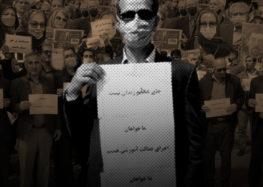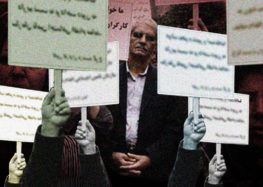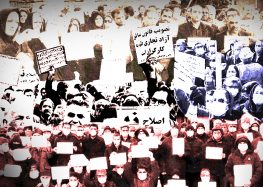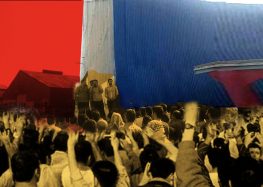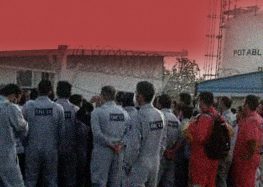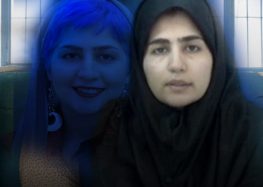Detained Protester Reportedly Tortured as Iranian Sugar Mill Workers Demand Unpaid Wages
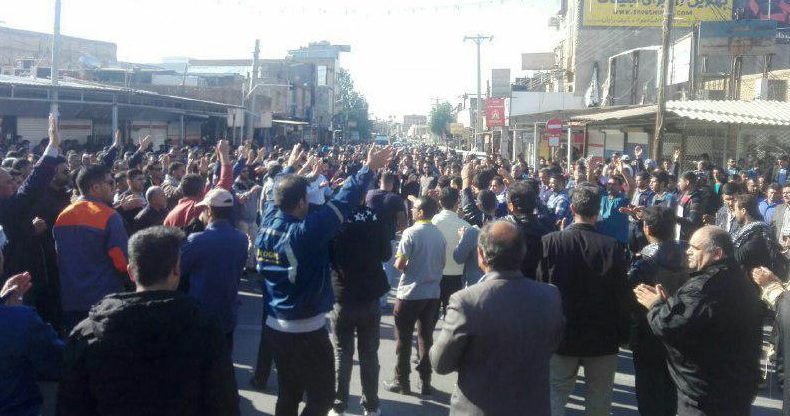
Detained labor activist Esmail Bakhshi was hospitalized after being tortured under interrogation, according to Iranian labor sources.
Bakhshi’s colleague Ali Nejati was also arrested by security forces on the 25th day of protests by hundreds of Haft Tappeh workers demanding months of unpaid wages in the southwestern Iranian city of Shush.
“The reports we have received say security forces have severely tortured Esmail Bakhshi after his detention [on November 20th],” reported an Iranian labor news channel on November 29.
“Bakshi’s face has been swollen and bruised from receiving several blows to the head,” said the posting. “He is also in a dangerous condition suffering from bleeding in the stomach, for which he has been transferred to a hospital in Ahvaz. There is no information about his condition.”
Hours after the Telegram posting appeared, the head of the local court system in Shush, Sadegh Jafari Chegini, denied Bakhshi had been physically abused, adding that the “false news” was aimed at “disturbing public opinion.”
“The suspect Esmail Bakhshi is completely healthy and he had telephone contact with his family today,” he added.
Bakhshi’s health condition and case status, including whether he has been allowed access to a lawyer, remains unclear.
Hundreds of workers at the sugar manufacturing company have been rallying since November 14 demanding months of unpaid wages and benefits. The company’s CEO Omid Asadbeigi is currently missing and wanted in connection with alleged foreign currency fraud.
A telegram channel set up by a worker’s union reported November 29 that one of their board members had been arrested at his home without a warrant.
“The stress of the incident caused Ali Nejati to become ill but despite having a history of heart disease, the agents beat him up and took him away,” the report said.
Nejati’s son, Peyman Nejati, and a family friend, Majid Roayaei, were also arrested and released on bail the same day.
Labor activism in Iran is seen as a national security offense; independent labor unions are not allowed to function, strikers are often fired and risk arrest, and labor leaders are consistently prosecuted under catchall national security charges and sentenced to long prison terms.
The protesting workers received support from students who held a rally at Allameh Tabataba’i University on November 20 and at the University of Tehran on November 19 hold up signs including slogans, “We are the children of workers, we will stand by their side” and “Free imprisoned workers.”
“They have arrested Esmail [Bakhshi], we are all Bakhshis,” said a man at a rally on November 21 who was described in the YouTube clip as a university professor.
“For me, it’s laughable to go to class and tell my students that there have been 187 strikes at this company during the course of a single year,” he added.
Fifty-one Iranian lawyers, most of them practicing in Khuzestan Province, also issued a statement on November 19 reminding the authorities that non-violent assembly is a universally recognized human right guaranteed by Iran’s Constitution:
“We attorneys believe that based on Article 27 of [Iran’s] Constitution and Article 20 of the Universal Declaration of Human Rights guarantee the right as well as the UN Convention for the Civil and Political Rights, these peaceful gatherings for the purpose of demanding labor rights are lawful and… we call on the authorities to look into and resolve issues facing the noble working classes.”

